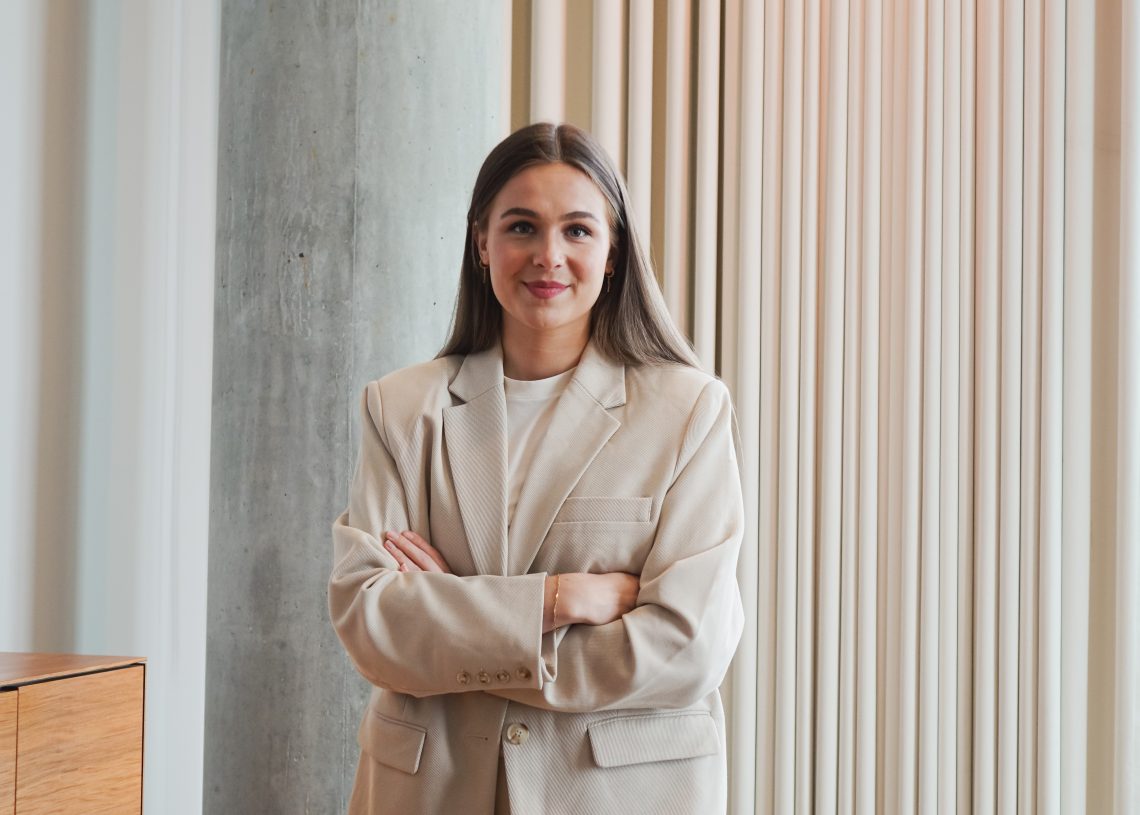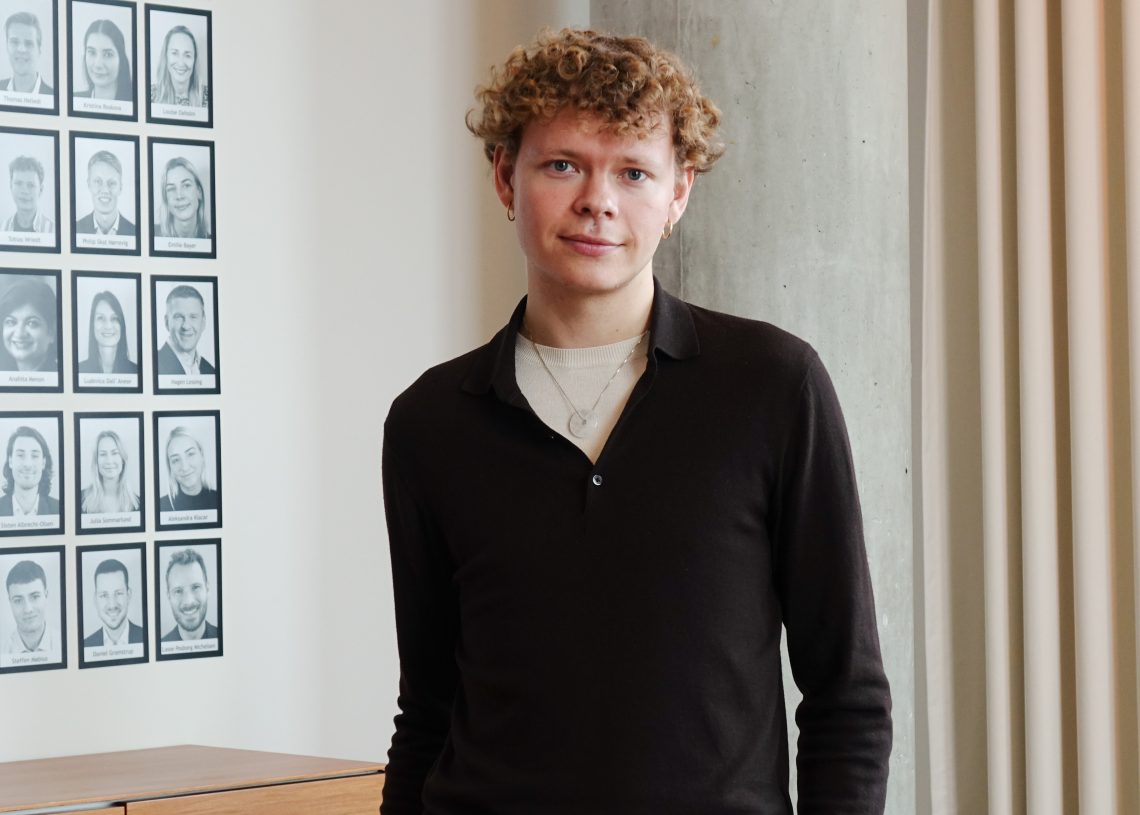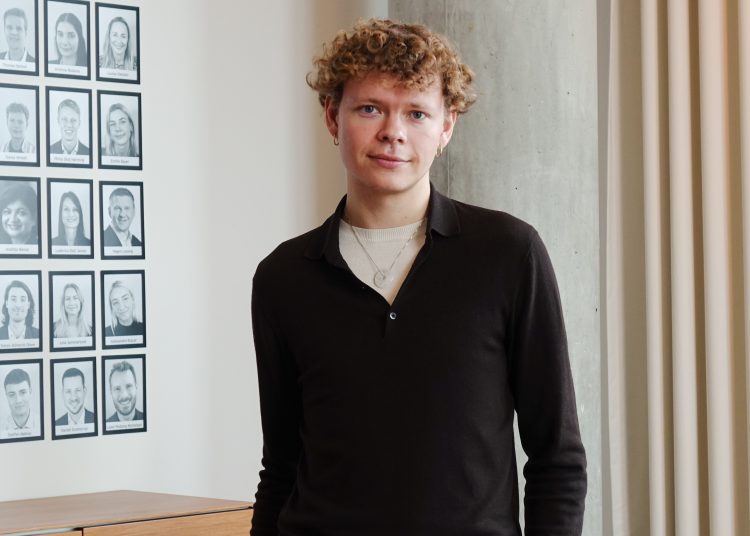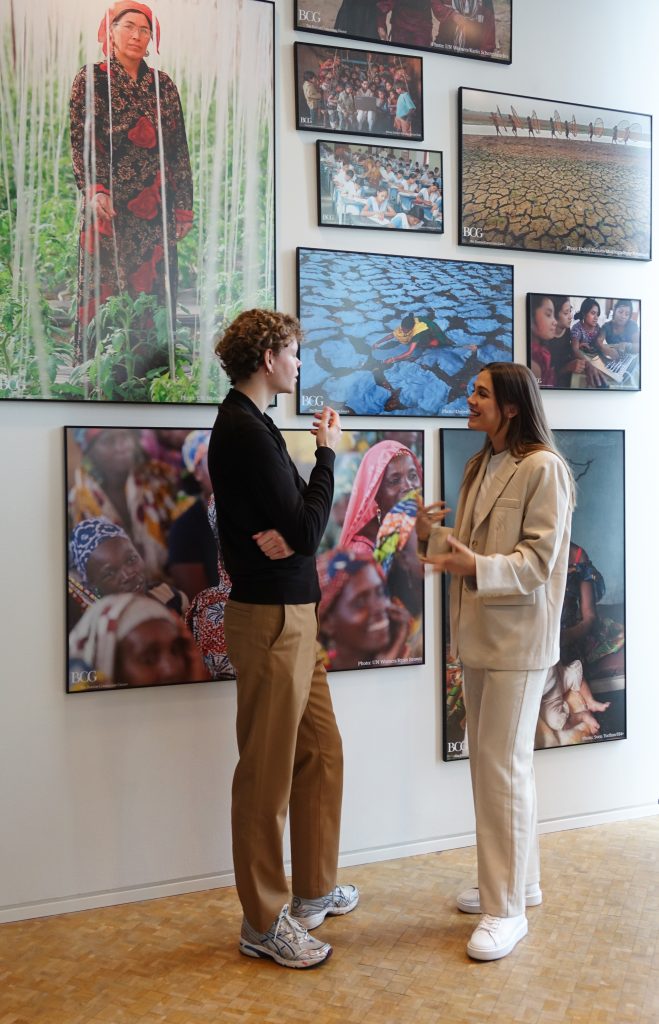Every year BCG and UN Women co-host the Gender Diversity Roundtable where industry leaders discuss the latest topics in advancing gender diversity. We asked Ingvild Risberg and Tobias Wriedt - both Associates at BCG - about their experience in preparing this year's roundtable.
Ingvild and Tobias, how did BCG support the Gender Diversity Roundtable this year?
Ingvild: “Each year, BCG and UN Women in the Nordics co-host the annual Gender Diversity Roundtable on March 8th. The purpose of the roundtable is to bring together recognized leaders of society, both from the private sector, academia and civil society, to discuss how gender diversity can be improved. To facilitate this, BCG brings the latest research on gender diversity in Denmark and the Nordics to the table to create awareness of the status-quo. This year, we researched how companies can retain and advance women into leadership positions to build an organic and sustainable women leadership pipeline.”
Tobias: “The aim is to discuss how we can create more diverse, equitable and inclusive workplaces in Denmark. The BCG team has helped prepare a presentation on this year’s theme: retention and advancement of women. We have also coordinated a case study of a large Danish company and created a video and article on the theme. It has been an exciting process where we have been in contact with some of the BCG experts on Diversity, Equity & Inclusion and dived deep into some of the most recent research on the topic.”


What is your biggest learning from your work for the Gender Diversity Roundtable? Was there anything you found surprising?
Ingvild: “My number one learning has been how important it is to recognize that every person has different needs. When we talk about diversity, equity and inclusion, there is a tendency to group people based on demographic characteristics. However, people who look the same or belong to the same minority might have completely different needs that motivate and encourage them. We found that in order to foster a truly inclusive culture that encourages women to advance, companies need to identify and act on these very individual needs. In the future, it is not enough to implement broad ad-hoc initiatives such as a women’s network or a one-time event. Instead of a ‘one-fits-all’ approach, companies need to implement dedicated processes and initiatives for diversity, equity and inclusion in the backbone of their company culture and ensure that induvial needs are met on an everyday basis. “
Tobias: “One interesting insight is around the important role that networking and role models play in the advancement of women. When networking, people tend to connect and relate to people who remind them of themselves. Therefore, if the majority of a company’s senior leadership consists of men, there’s a high likelihood that these leaders will create stronger informal relationships with other men. Not being a part of the informal relationships in a company can negatively affect the advancement of women, as seeing oneself in a leadership position can be difficult without clear role models. It might also be less attractive to become part of a group in which one doesn’t feel included. On top of that, these informal relationship structures can lead to sponsorships that advocate for men rather than women. Thus, male-dominated environments can lead to dynamics that favor the advancement of men rather than women. I believe that understanding this is extremely important in advancing gender diversity.”
"Companies need to implement dedicated processes and initiatives for diversity, equity and inclusion in the backbone of their company culture."

Ingvild Risberg
Associate
Based on your learnings, what would you say are the key topics in gender diversity in 2022?
Ingvild: “Over the last years, we have seen that companies focused on recruiting women to achieve diversity. This is a first step in the right direction but the retention and advancement of women is as important to achieve a sustainable women leadership pipeline. Despite increased recruitment efforts, the share of women in leadership position in Denmark has stagnated over the past years. We found that only 9% of women in senior management positions are seeking to advance further, which ultimately hinders improved gender diversity at the top level. In 2022, companies need to stop solely focusing on recruitment intake but also make sure that women want to stay and grow in their company.”
Tobias: “I definitely think two key topics are retention and advancement of women. Retention enables advancement. One of the most important aspects of retention is to understand that you need to create a truly inclusive workplace for women to thrive and be motivated to stay. This also holds for other groups such as people of color and members of the LGBTQIA+ community. Changing a company’s culture is difficult as it requires a group effort of the people working there – especially the leaders. Therefore, I believe companies need to realize that enhancing diversity, equity and inclusion demands a lot of work and can’t only be done by recruiting a more diverse workforce.”
"Companies need to realize that enhancing diversity, equity and inclusion demands a lot of work and can't only be done by recruiting a more diverse workforce."

Tobias Wriedt
Associate

Ingvild and Tobias have joined BCG in 2021. Ingvild holds a master’s degree in Business Administration and Information Systems from Copenhagen Business School. Tobias holds a master’s degree in Psychology from the University of Copenhagen.
You both have very different academic backgrounds that are not specifically related to gender diversity. How did your backgrounds still help you in your social impact work?
Ingvild: “My background in IT and business was particularly useful for the quantitative part of the project. We analyzed a global survey that required IT tools for data processing and visualization. In particular, my experience with analyzing big datasets enabled me to approach the explorative phase of the data analysis in a structured way.”
Tobias: “Coming from a background in psychology, I have been able to leverage my knowledge of social and psychological workplace dynamics, which has been helpful in understanding the nuances of the issues we face in creating diversity, equity & inclusion in Danish companies. This has come in handy when looking into how the company culture affects the experience of women and minorities, e.g., how a specific wording or a situation can have a certain impact on underrepresented groups.”
How was your experience working with social impact at BCG for the first time? Would you want to work with social impact again in the future?
Ingvild: “It has been very motivating and inspiring to work on such a relevant and important project. A highlight has been all the interesting conversations I got to be a part of while on the case – with my team, with BCG’s global network of experts, with UN Women, with women in executive leadership positions… – and the list goes on. The project has been a great leaning journey and it has been very rewarding to push such an important topic forward. So, I would be excited to work on a social impact project again in the future.”
Tobias: “I have really enjoyed it. As a member of the LGBTQIA+ community I am very passionate about enhancing and promoting diversity, equity and inclusion in the workplace – so I really appreciate that BCG is engaged in making a change. I would love to join another social impact project again in the future. It has been an inspiring and rewarding project to be engaged in and I’m excited to see how the outcome of the project will inspire companies in Denmark.”




